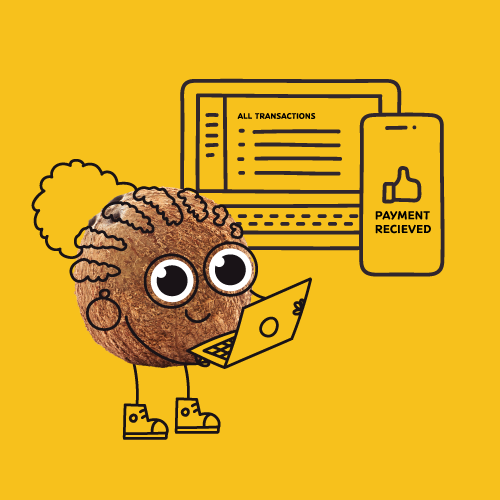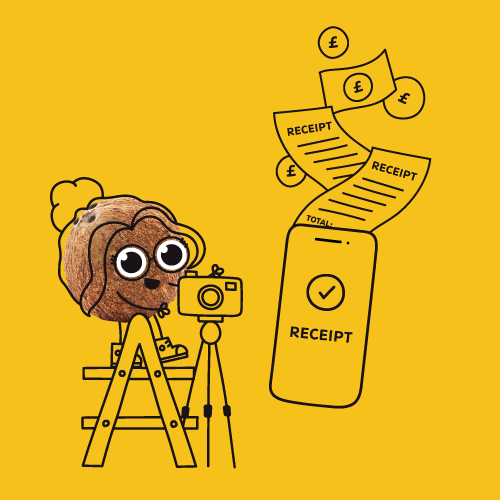Photo by Glenn Carstens-Peters on Unsplash
The VAT Cash Accounting Scheme is a useful method of reporting VAT for many small businesses.
It essentially means that income is recorded when it is received and expenses are recorded in the period they are paid. It’s different from the Standard VAT Accounting Scheme which requires VAT to be recorded on the date of issuing or receiving a VAT invoice, regardless of when (or if) the payment is made.
If you have cash flow concerns or lengthy payment terms, the VAT Cash Accounting Scheme could be for you. We’re going to take a closer look at how to qualify and what it could mean for you and your business.
Qualifying for the Cash Accounting Scheme
To be eligible for the Cash Accounting Scheme, your business must be VAT-registered and have an estimated taxable turnover of less than £1.35 million.
However, you won’t be able to use this scheme if you have committed a VAT offence in the last 12 months (such as tax evasion), or if you’re behind on your VAT returns and have outstanding VAT payments.
There are also certain transactions that you will not be able to use the Cash Accounting Scheme for, such as:
- Those with payment terms of six months or more
- VAT invoices that are raised in advance
- Buying or selling goods using lease purchase, hire purchase, conditional sale or credit sale
- Importing goods from within the EU
- Moving goods outside a customs warehouse
If you’re likely to encounter any of these transactions you won’t be able to use the Cash Accounting Scheme, you will need to use the Standard VAT Scheme instead.
Benefits of the scheme
The Cash Accounting Scheme is most beneficial for small businesses as it can help to improve cash flow, especially if your customers are slow payers. You don’t need to pay VAT until you’ve received payment yourself, and if a customer doesn’t pay you for any reason, you don’t have to pay VAT on that bad debt.
Most businesses find it easier to think in terms of cash in and out of their business rather than having to consider future amounts that they are yet to pay out or receive.
Things to be aware of
Whilst good cash flow and not having to paying VAT on bad debts sounds great, there are some things to be mindful of before you decide to adopt the scheme.
For example, you won’t be able to reclaim the VAT on your purchases until you have paid your suppliers. A potential disadvantage if you pay for most of your goods or services on credit.
It’s also less likely to be beneficial for your business if your VAT returns are mostly made up of VAT reclaims, this could mean you receive your VAT repayment later than under an accruals basis. The accrual basis is where you use the sales and purchase invoices to calculate the VAT, regardless of whether they have been paid or not.
Finally - it’s worth pointing out that if you leave the Cash Accounting Scheme you will have to declare all outstanding VAT due, including any bad debts from late payments.
Joining and leaving the Cash Accounting Scheme
When you join the scheme you don’t need to inform HMRC. You simply need to start accounting this way from the day your VAT registration starts (if you are not already registered). Or from the beginning of any VAT period in which you are already VAT-registered.
You will be able to leave the scheme at any time. Although it’s best to leave it at the end of a VAT accounting period if possible.
If you do decide to leave, you won’t need to inform HMRC. However, you must report and then pay any outstanding VAT (whether your customers have paid you or not).
When the value of your taxable supplies, including disposal of stock and capital assets but excluding VAT, exceeds £1.6 million within a tax year, then you will need to leave the scheme for one more suitable for a business of your size.
Need some guidance?
Don't worry, it can quite complicated. If you're uncertain of whether the VAT Cash Accounting Scheme is for you, it’s best to seek advice from your accountant. They will be able to advise on your specific situation and with a view on what’s best for your business.
If don’t yet have an accountant, you might want to speak with one through our Integrated Accounting Partners. So if you'd like to learn more, we'd love to chat. Book a call with our team at a time that suits you.











